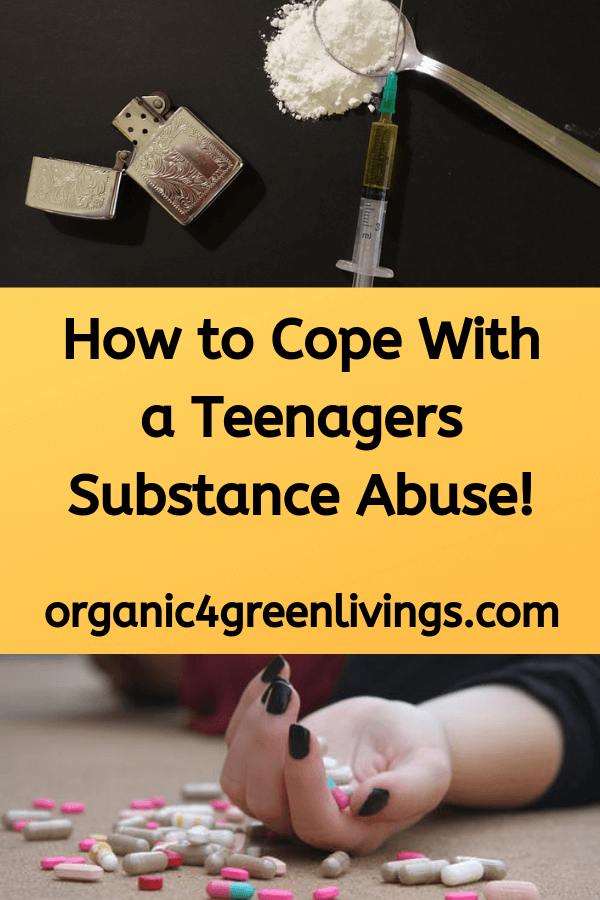Coping With a Teenagers Substance Abuse
While it is unrealistic to expect a teenager not to experiment here and there with drugs and alcohol, it can be a terrifying experience to discover that your teenage son or daughter has a substance use disorder. Many parents are unsure of how to react and cope with this discovery, feeling like they have failed as a parent. Addiction is an exhausting cycle that affects everyone it touches, but there are some things you can do to help your teenager who is suffering and cope with what you are going through.

Look and Listen
Curiosity and peer pressure can lead many teenagers to experiment with drugs and alcohol, but there are some definite differences between experimenting and substance abuse. Knowing what to look for and how to address the subject of drugs with your teenager can help prevent further problems down the line.
Look for signs of teen substance abuse, such as:
- Changing friends often
- Lack of interest in family gatherings
- Frequent absence from school or loss of interest in extracurricular activities
- Defiant behaviors such as lying or sneaking out
- Avoiding eye contact
- Appetite changes
- Mood swings and memory or concentration problems
Talking to your kids about drugs is important, but listening to them is absolutely essential. If you appear to be a compassionate, understanding listener, your teenagers will be more likely to confide in you and speak openly with you about touchy subjects like substance abuse. Although the conversation may be uncomfortable at first, the best preventative strategy is opening the lines of communication between you and your teenager.

Keep Calm
It is no secret that many teenagers are strong-willed and will rebel from time to time, but when it comes to a problem as serious as substance abuse it is important to keep calm. When you first find out that your teenager is using drugs, anger is a perfectly normal reaction. However, displaying this anger towards them only breeds more anger.
If you act out by yelling at your teenager or acting in a hostile way, they will retaliate with the same angitation and continue to act out on negative behaviors. Instead, keeping a calm demeanor will help your teenager feel more comfortable talking with you and keep the door open to ask for help when they need it.

Don’t Enable
Addiction is a family disease, meaning that it affects not only the addict but their family as well. Many parents will begin to exhibit codependent behaviors with the intention of keeping their child safe and shielding them from the consequences of drug use. A codependent parent may feel as though they have a responsibility of protecting their teenager while they are abusing drugs, but this will only cause your teenager to continue abusing drugs.
Some examples of enabling behaviors include:
- Keeping secrets about your teenager’s behavior
- Bailing your teenager out of trouble with school, friends, or the law
- Blaming others for your teenager’s behavior
- Avoiding addressing the problem
- Giving your teenager unearned money
- Trying to control things that are out of your control
- Taking care of the teenager’s obligations that they should be able to take care of themselves
Instead of enabling, you should practice tough love by not giving in to enabling behaviors and keeping boundaries firm. Tough love isn’t easy, but those who enable their loved ones are only allowing them to persist with negative, self-destructive behaviors.

Practice Self-care
If your teen is suffering, your natural response may be to devote all of your time and attention to fixing the problem. This can be exhausting and take a serious toll on your overall well-being. However, an overstressed, controlling parent isn’t good for the teenager, either.
In order to manage your stress and take care of yourself, it is important to set aside some time each day to practice self-care. Whether this means a day at the spa, reading a book, going on a long walk, or going to the gym, self-care is important for all parents. Make sure you continue to do the things you enjoy as they will better help you maintain your composure and a level head in the home.
Find a Support Group
Many addicts and alcoholics attend some form of support group once they decide to get sober. Since addiction is a family disease, numerous support groups for families of an addicted loved one have sprung up across the globe.
These support groups will allow you to be surrounded by other parents who understand what you are going through. They can give you advice on how to handle certain situations that you may be in and offer you a compassionate shoulder to lean on. If you are lucky, you may even meet someone who has watched their teenager suffer from addiction and come out on the other side. From them, you can gain a sense of hope that not all is lost.
Ask for Help
While it is completely understandable to not want to admit that your teenager may have a problem, sometimes it is essential to seek outside help. Everybody needs help sometimes and there is no foolproof manual on dealing with a teenagers substance abuse. In addition, you are not expected to go through this alone. Don’t hesitate to talk to a therapist or addiction specialist to see what can be done to help you and your teenager to get through this difficult time.
Author Bio: Kate Adermann is a passionate writer, nature enthusiast, and dog lover. As a person in recovery, she advocates spreading awareness and helping others who are suffering from addiction.
